Genevieve Jeanson: New questions and answers
Podcast follow-up questions detail timeline, provide clarity
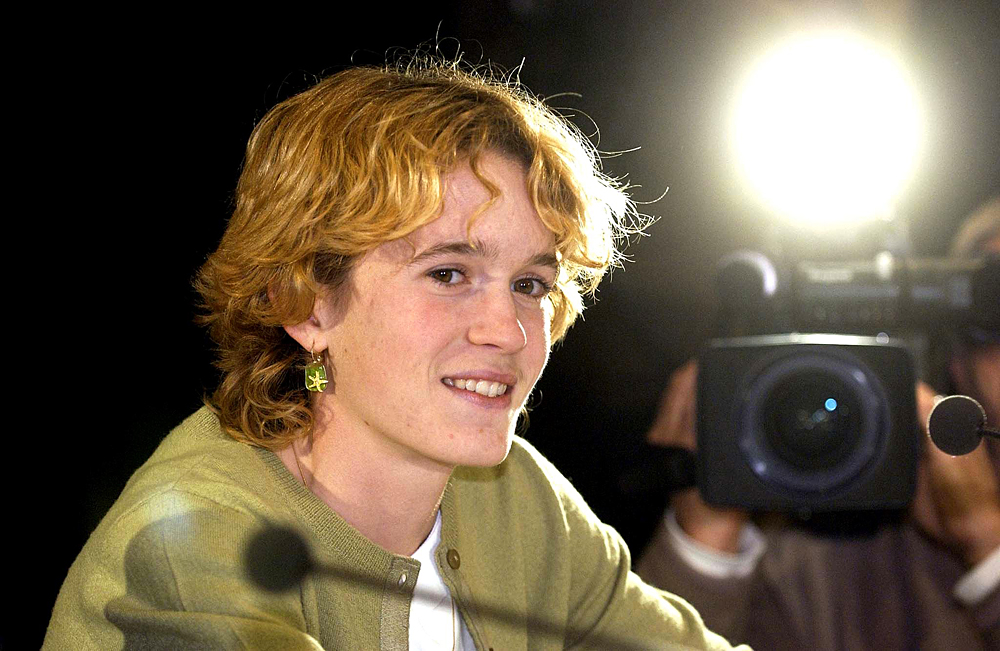
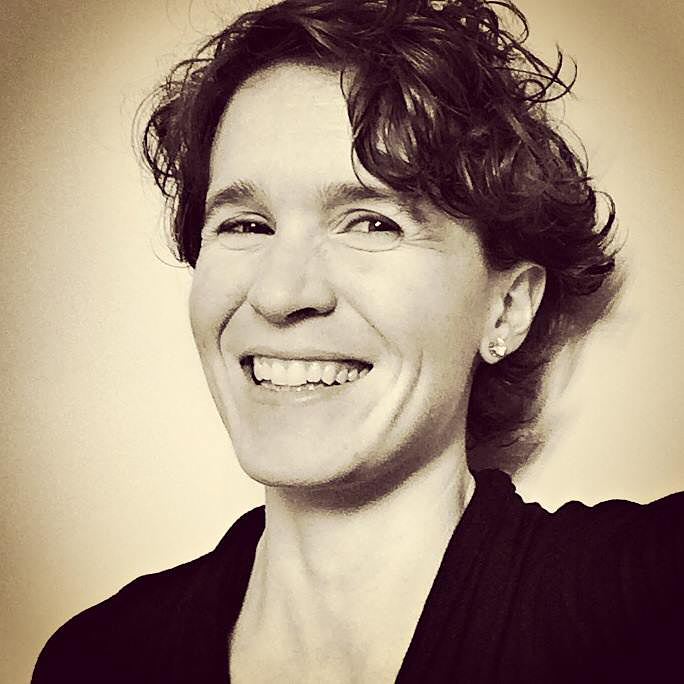
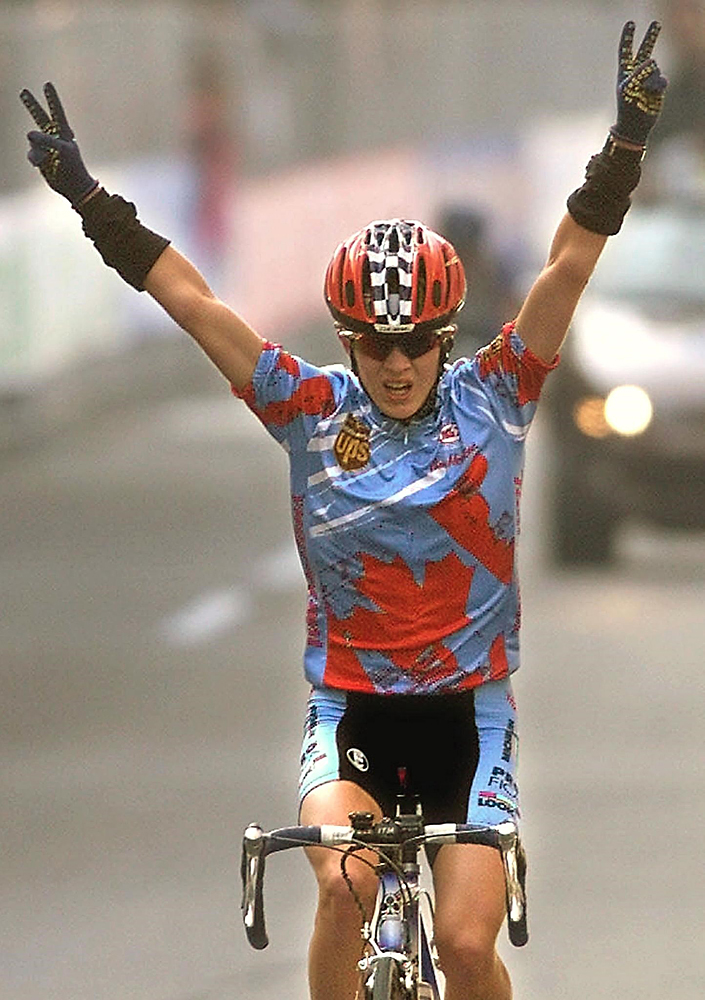
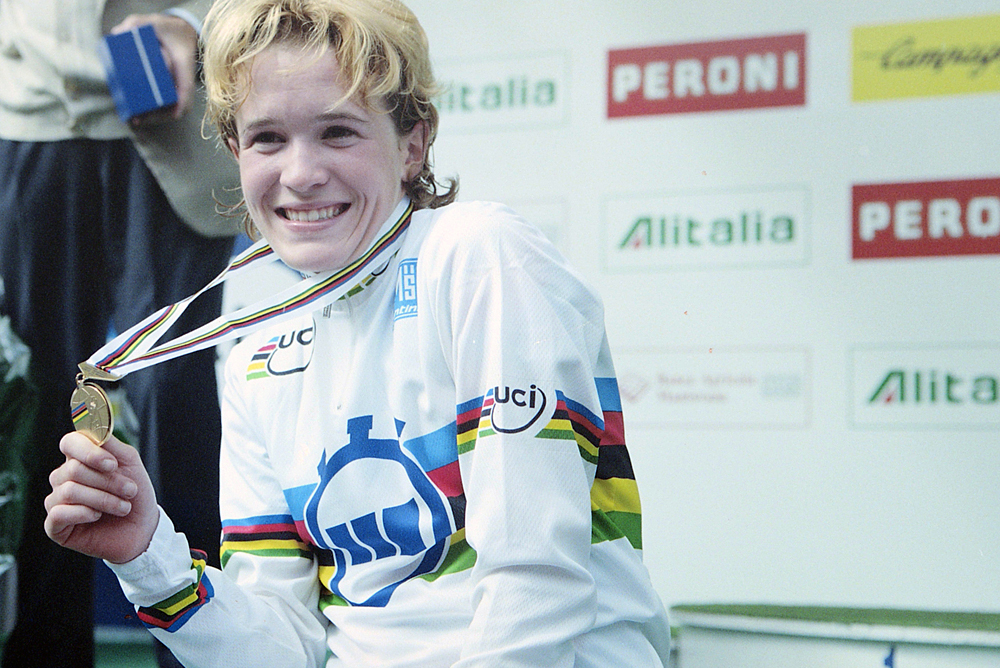
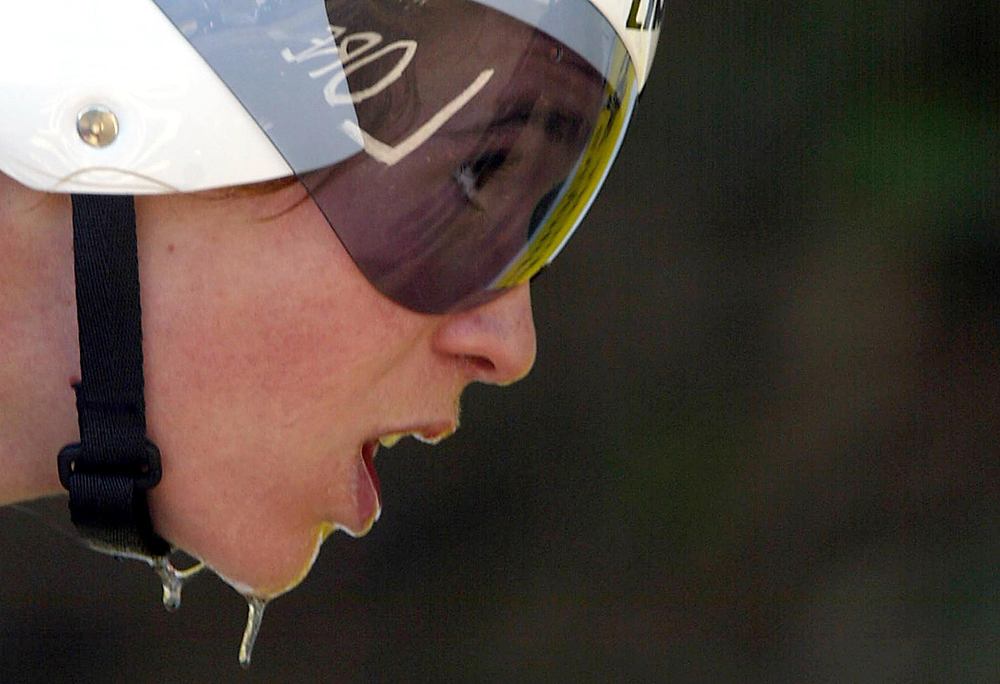
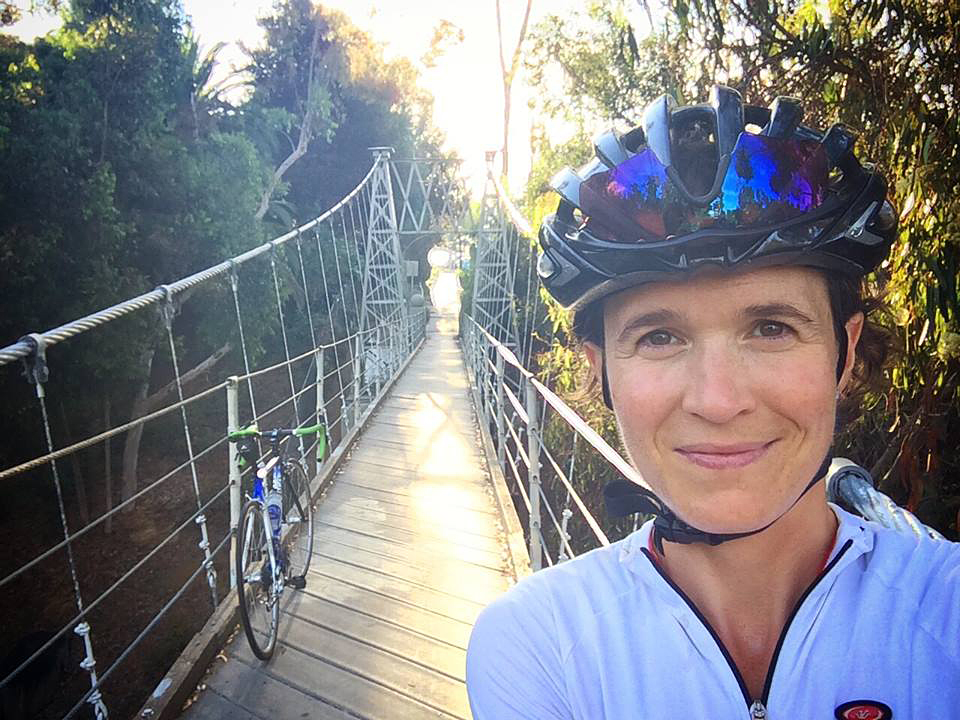
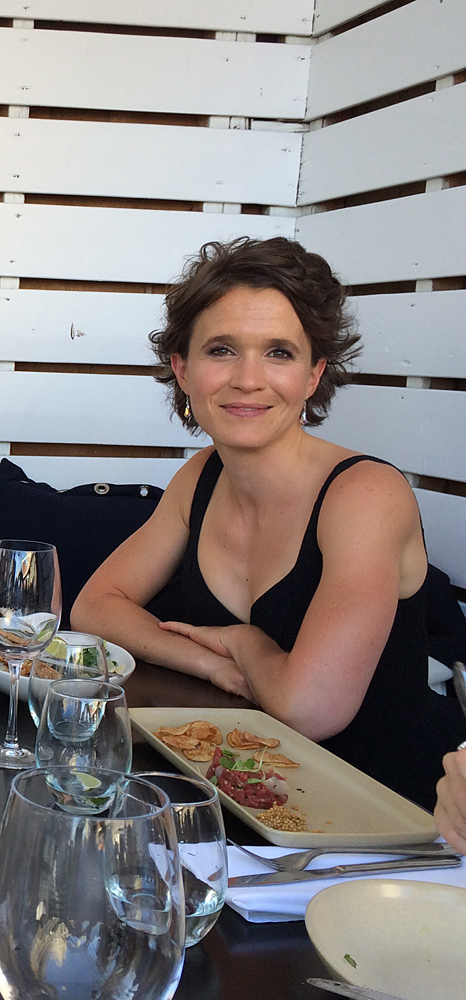
Genevieve Jeanson, a former Canadian cyclist who confessed to using erythropoietin (EPO) during most of her career from 1998 until caught in 2005, resurfaced as a spectator at the World Championships in Richmond, Virginia. She sat down with Cyclingnews in an exclusive podcast discussion on September 27, which was released roughly ten weeks later on December 9.
Eight years ago, Jeanson made her doping confession during an interview with Canadian journalist Alain Gravel in his investigative report that aired on Enquête, a Radio-Canada television show. Because of that confession, she was issued a lifetime ban, which was then reduced to 10 years for cooperating with an investigation conducted by the Canadian Centre for Ethics in Sport (CCES) into her coach Andre Aubut and Montreal-based physician Maurice Duquette. CCES gave them both lifetime bans for administering a prohibited substance, erythropoietin (EPO), to Jeanson during her cycling career, when she was a minor.
In the podcast interview, Jeanson revealed shocking details about her relationship with Aubut, alleging that he was verbally and physically abusive toward her. These allegations also surfaced in Gravel’s L’affaire Jeanson: l’engrenage, a book published in 2008 that highlighted his interview process with Jeanson for the Enquête airing, where he detailed his own investigation into the nature of their relationship.
The seriousness of Jeanson’s renewed allegations in the podcast prompted Cyclingnews to investigate further, and part of that investigation included four follow-up interviews with Jeanson, on September 28, October 1, October 31 and November 27, to establish timelines, and to develop additional understanding about her claims.
Read the full feature and listen to the Genevieve Jeanson: Exclusive Podcast.To subscribe to the Cyclingnews podcast.
It’s been eight years since Jeanson’s somewhat defiant confession about cheating while speaking with respected Canadian journalist Alain Gravel in his investigative report that aired on Enquête, a Radio-Canada television show, in September of 2007.
The doping, 1998-2005
Get The Leadout Newsletter
The latest race content, interviews, features, reviews and expert buying guides, direct to your inbox!
Cyclingnews: What year did you meet Andre Aubut, you said that you were 13? (Follow-up 3)
Genevieve Jeanson: In 1994.
CN: Was he a high school teacher? (Follow-up 3)
GJ: Yes.
CN: Was he a teacher when you met him? (Follow-up 3)
GJ: Yes.
CN: Was he your teacher? (Follow-up 3)
GJ: No, I was in a different school.
CN: How did you meet him? (Follow-up 3)
GJ: He was working at the Rossi Bicycle Store. Rossi had a big bike store, and he was working there in the summer time as a sales person.
CN: You said that he started writing training programs for you in 1995 when you were 14? (Follow-up 3)
GJ: Yes.
CN: How old were you when you first took EPO? (Follow-up 3)
GJ: I was 16. I was in the last year of high school, my birthday is at the end of August, so it was in the spring of 1998 and I would have turned 17 at the end of that summer.
CN: So, you were 16 at the time? (Follow-up 3)
GJ: Yes.
CN: Why did you finally decided to confess about using EPO from 1998 until you were caught in 2005, during the 2007 Enquête interview with Alain Gravel? (Follow-up 1)
GJ: I feel remorseful for all my fellow cyclists and fans that I hurt through my actions and bad decisions. But even with EPO I put a whole lot of effort, dedication and passion into what I was doing.
GJ: Do I feel remorse now? Oh, that’s a good question. I do feel bad… Yes, I feel bad sometimes. I feel bad sometimes, but it was my reality.
CN: The Canadian Centre for Ethics in Sport gave you a 10-year ban, but you weren’t stripped of the majority of your titles by the sport's governing bodies. Have [you] ever considered returning [your] titles and making a public apology, as a gesture to the cycling community? (Follow-up 4)
GJ: I have never thought about it [returning titles and apologizing] because I was always too caught up in the only world that I knew. I would have to really ask myself this question. I am sorry for everything that I created and to everybody that I hurt.
I’m going through a process of being more authentic, and I have so many layers of stuff; of shit, of emotion, of traumatic events, of good events, or praise and criticism, and all that stuff. The only way I can get to the core of it is to take one layer off, slowly, at a time.
Aubut, allegations of abuse
CN: In our Cyclingnews podcast, and during the process of your 2007 interviews with Alain Gravel, you alleged that Andre Aubut was verbally and physically abusive toward you. When did that start? (Follow-up 3)
GJ: Right about the same time [as the EPO use]. It was 1998.
CN: At the beginning of your interview process with Gravel, you seemed hesitant to talk about it, yet, now you seem comfortable when talking about it. Why? (Follow-up 2)
GJ: I think there are a bunch of reasons. I was talking about that with my psychologist this morning. For a long time, I always took everything on my shoulders: it was all my fault. A big part of me thought that I deserved it. I deserved to get beat up, and all that stuff, I deserved all that. Now, with all the work I have done on myself, I know that I did not deserve that, at all. Of course, I had my own [bad] attitude and all that stuff back then, but that was mainly for survival. I came to some sort of peace with it, so it’s easier for me to talk about it [now].
At the same time, as I told you in Richmond, I’m not sure if I have the strength to bring him [Andre Aubut] to court. The other thing that I think about is that my life is OK now. I don’t want to get stuck in it all over again.
People don’t understand what I went through. For the longest time, I didn’t really care [what other people thought] because it was my story, and the people close to me know about it [now], and that’s fine, they’ve accepted me. But now, I see there is a different energy about it, people want to know.
It might happen to other people in other places, in other situations. If people are not aware that they can get out of it, they won’t. They’re going to end up like me. It’s going to take a longer time before they say, ‘it’s enough.’
CN: Were you and Andre Aubut married? (Follow-up 3)
GJ: We were.
CN: When and for how long? (Follow-up 3)
GJ: We got married to buy the restaurant, as advised by our immigration lawyer back then, now the dates are all mixed up in my head but it was from April to August, in 2006.
CN: Andre Aubut refuted your allegations of abuse when Gravel asked him for a statement, in his book L’affaire Jeanson: l’engrenage (p. 222, p. 230 and p. 235). What would you do if Andre Aubut refuted your allegations of abuse again; if you saw him on the street or if he contacted you, what would you say to him? (Follow-up 2)
GJ: I would say it's the truth. He knows. He knows that he beat me up. I have pictures with black eyes and stuff that I have had to lie about and everything. So, it’s all true…
Everything is true in what I said [in the podcast], the fact that he wanted to commit suicide, it’s all true. In my afterthoughts today, I’m not sure if I have the strength to be in the media again and talk about it again, and all that stuff.
CN: Did you ever try to call authorities or reach out to anyone for help? (Follow-up 2)
GJ: I never did.
CN: Why? (Follow-up 2)
GJ: For a long time I was afraid that he would come after me. And after that, I started to live my life, and I didn’t want to deal with it anymore. The only thing that I wanted to deal with was my own shit, and how I could live and how I could get through with it.
CN: Why do you want other people to know this side of your story now? (Follow-up 2)
GJ: I think about this example sometimes: you know when you are young, and you are afraid of monsters under the bed, but you don’t tell anyone because you think that you are the only one who is afraid of monsters. Then at some point, you play with your little friends and you tell them, ‘Oh my God, last night I was so scared I heard a noise and I thought there was a monster underneath my bed,' and they say, ‘Oh my God, me too.’ It’s a big relief that you are not the only one. It [my story] could have that effect.
Andre, at the same time, he could say whatever he wants, he was violent. He was the worst.
CN: So, it’s important for you that people know this side of your story? You believe that it might help other people in similar situations? (Follow-up 2)
GJ: This is where I’m not sure. And to tell you the truth, when I listen to Clara Hughes, she came out with big things about her family and everything, and it kind of gave me strength.
CN: Do you mean about Clara Hughes’ personal life and her mental health awareness initiatives? (Follow-up 2)
GJ: Yes.
CN: Clara Hughes has done a lot for mental health awareness in Canada. She championed the Bell Let’s Talk campaign, rode her bike across Canada to raise additional awareness about mental health? Does this inspire you? (Follow-up 2)
GJ: Yes, I really thought about my own things when I heard her [story]. I never actually talked to her, not since 2002, and I was not aware of any of that [her struggle with mental health]. But now, it all makes sense to me, everything she went through, and she had some super dark moments. Maybe her story wasn’t worse [than my story]; it was different.
What did Jeanson’s parents know?
CN: You said in the podcast that your parents knew some things about your and Andre Aubut’s athlete-coach time together, especially in the beginning, but that they did not know everything. What did they know? (Follow-up 3)
GJ: He [Jeanson’s father] knew that I took EPO.
CN: Can you clarify what he knew about your use of EPO? (Follow-up 4)
GJ: The first time that I got it [EPO] it was because I was anaemic, so we brought my parents into the thought that, ‘well, your daughter is kind of sick and this is going to help her to continue sport,' and after that I just continued.
CN: Did he know that EPO is on the World Anti-Doping Agency’s banned substance list? (Follow-up 4)
GJ: It’s true that at first my parents, they knew that it [EPO] was a banned substance, and they knew that it would help me get back on my feet. But after that, I continued to use it.
CN: What didn’t they know about your coach-athlete relationship with Andre Aubut? (Follow-up 3)
GJ: He [Jeanson’s father] didn’t know about the violence and the verbal abuse.
CN: You said that you have reconciled with your parents and that it’s taken a long time. What is the relationship like between you and your parents now? (Follow-up 3)
GJ: It was a six- or seven-year process. I came back here [Montreal] in 2012, we got quite angry with each other in 2006 and 2007, so it was five or six years.
CN: Have you forgiven them? (Follow-up 3)
GJ: Yes, absolutely, 100 per cent.
Aubut did not respond to Cyclingnews’ phone messages or a letter mailed to his address seeking a comment concerning Jeanson’s allegations of verbal and physical abuse.
For more information and educational tools about ethics in sport
Cycling Canada: http://www.cyclingcanada.ca
-Race Clean Program - http://www.cyclingcanada.ca/resources/race-clean/canadian-centre-for-ethics-in-sport-cces/
Canadian Centre for Ethics in Sport: http://cces.ca
-Canadian Anti-Doping Program – http://cces.ca/canadian-anti-doping-program
- The Prohibited List - http://cces.ca/prohibited-list
-Report doping - http://cces.ca/reportdoping
-Canadian Strategy for Ethical Conduct in Sport - http://cces.ca/ethical-issues
-Canadian Centre for Ethics in Sport Online Education - http://cces.ca/education-and-e-learning
-Appearance- and Performance-Enhancing Drugs (APEDs) and Youth - http://cces.ca/summit-apeds-and-youth
-Violence - http://cces.ca/violence
-Harassment and Abuse - http://cces.ca/harassment-and-abuse
-Physical Punishment - http://cces.ca/physical-punishment
-Poor Parental Behaviour -http://cces.ca/poor-parental-behaviour
-Negative Behaviours in Pro Sports - http://cces.ca/negative-behaviours-pro-sport
USA Cycling: https://www.usacycling.org
-Health and Anti-Doping - https://www.usacycling.org/health-anti-doping.htm
-Race Clean Program - https://www.usacycling.org/usa-cycling-raceclean-program.htm
US Anti-Doping Agency: http://www.usada.org
-Spirit of Sport - http://www.usada.org/resources/spirit-of-sport/
-Coaching Resources - http://www.usada.org/resources/coach/
-Health Professional Resources - http://www.usada.org/resources/healthpro/
International Cycling Union: http://www.uci.ch
-Clean Sport - http://www.usada.org/resources/healthpro/
-Health Ensure Cycling is Clean: http://www.uci.ch/clean-sport/help-ensure-cycling-clean/
-Education - http://www.uci.ch/clean-sport/education/
World Anti-Doping Agency: https://www.wada-ama.org
-Athlete Learning Program about Health and Anti-Doping (ALPHA) - https://www.wada-ama.org/en/what-we-do/education-awareness/tools-for-stakeholders/alpha

Kirsten Frattini is the Deputy Editor of Cyclingnews, overseeing the global racing content plan.
Kirsten has a background in Kinesiology and Health Science. She has been involved in cycling from the community and grassroots level to professional cycling's biggest races, reporting on the WorldTour, Spring Classics, Tours de France, World Championships and Olympic Games.
She began her sports journalism career with Cyclingnews as a North American Correspondent in 2006. In 2018, Kirsten became Women's Editor – overseeing the content strategy, race coverage and growth of women's professional cycling – before becoming Deputy Editor in 2023.